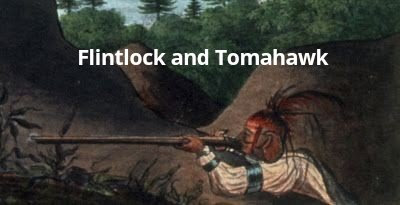Have you ever wondered about the origins of this word? Apparently Wolfe used the word in reference to Americans - the first recorded case of such use "I can afford you two companies of Yankees, and the more because they are better for ranging and scouting than either work or vigilance." [3] Read more on the wikipedia entry.
We all know the song Yankee Doodle originates from the Seven Years War and mocks colonial soldiers - read about it here.



I have not read your blog on the wars of Louis XVI for a long time. It was so much information! And I now just discovered that you are doing another blog on North-America from 1690 to 1815. I am puzzled. How do you find so much information? Do you spend your day on the internet searching for things? Or do you have a lot of people sending you information?
ReplyDeleteIn any case, I am impressed. My own interest is the New France period in North-America, but more particularly in the Lake Champlain Valley where I now live. I commented on your blog before and you were aware of the tour “When this land was called New France” which I had organized. Well, this tour did not happen. Not enough interest, not early enough, too niche I guess. But something pretty cool came from it. I was called to organize the French part of a trip on the steps of Samuel de Champlain, and here I was on the other side of “the pond”… Paris, Honfleur, and Brouage… (and some other beautiful places on the way like Saint-Malo, La Rochelle and Rochefort). Amazing places.
I’d like to share my souvenirs about 3 places with your readers. La Rochelle currently has an exhibit on New France in the Tour de la Chaine, right in the old port. Very well done.
In Rochefort, you can visit the superbly renovated arsenal ordered by Louis XVI in 1666, and built by Colbert, and the Corderie Royale, its rope making factory. It seems like Colbert took 3-4 years to decide on the arsenal location, and it was the most impressive arsenal in the world at the time. You can see the old shipyards, where they are now rebuilding the L’Hermione, the boat which took Lafayette across the Atlantic to join the Americans, in 1785. It is built full size, like the original one. The whole complex is definitely worth the visit.
And finally Brouage. Wow. An incredible well-kept secret. It is said that Brouage was in the 17th century one of the most important ports in France. Today, it is a little village, all within the walls of the old citadel. The sea has retracted, so it is in the middle of nowhere… surrounded by wetlands. A look at Mapquest.fr gives a sense of this special place (where Champlain was born) and you got to see its old walls all around, with its little towers.
And now back in North-America, I would like to pursue my detective work on what the Lake Champlain Valley looked like in the beginning of the 18th century, when the lakeshores had been divided in seigneuries granted by Louis XV, one of the most important ones owned by noone else than Gilles Hocquart, intendant of New France, and later intendant of Brest (who by the way built a road between Montreal and Lake Champlain… how convenient for him?!). I’d like to discover more about the way French settlers, described by Swedish botanist Peter Kalm (1749), lived there…. Learn more about Fort Saint-Frederic and Fort Carillon, their military engineers (Chaussegros de Lery and de Lotbinière)… their soldiers… the surgeons sent there from Montreal during the French and Indian War…
How do I start? Where to direct my research? Can I expect an interesting dialog with other passionate readers, if I blog about it like you do? (Feel free to take some of this comment to do a blog posting if you'd like... Christine
Hello again Christine!
ReplyDeleteSounds like a great trip indeed. If you send me your email address I would happy to invite you to contribute. My address is Ralphjmitchard@aol.com
I'm not really an expert - more an enthusiast but maybe some of the readers of this blog maybe be able to help you find out more. I was lucky enough to be able to visit Fort St-Frederic and sites around that part of the world about 10 years ago - lovely part of the world.
Ralph
Yankee, as i understand is words from 2 different worlds mixed by accents.
ReplyDeleteThese words were the same meanings, told to the Natives by the French.
When French is spoken as a first language, with a typical French accent, what you hear isn't the word English, but a butchered word sounding more like Yunguish, and if you don't like that, Yanquies, and if you don't like that either, try about 1,001 other ways to sound out the French sound. Then consider a Native in one of many local cultures of that time repeating how he hears the word, and you will have no problem seeing how an English officer would mistake hearing his own cultures common name 'English', and begin to call the colonials Yankee's.
Hope you like the wee lesson, and I don't care what wikipedia says.. mac
Ralphus, is this ALL your blog? If so, you have been busy since we met that one time.. (see your Flintlock and Tomahawk picture)